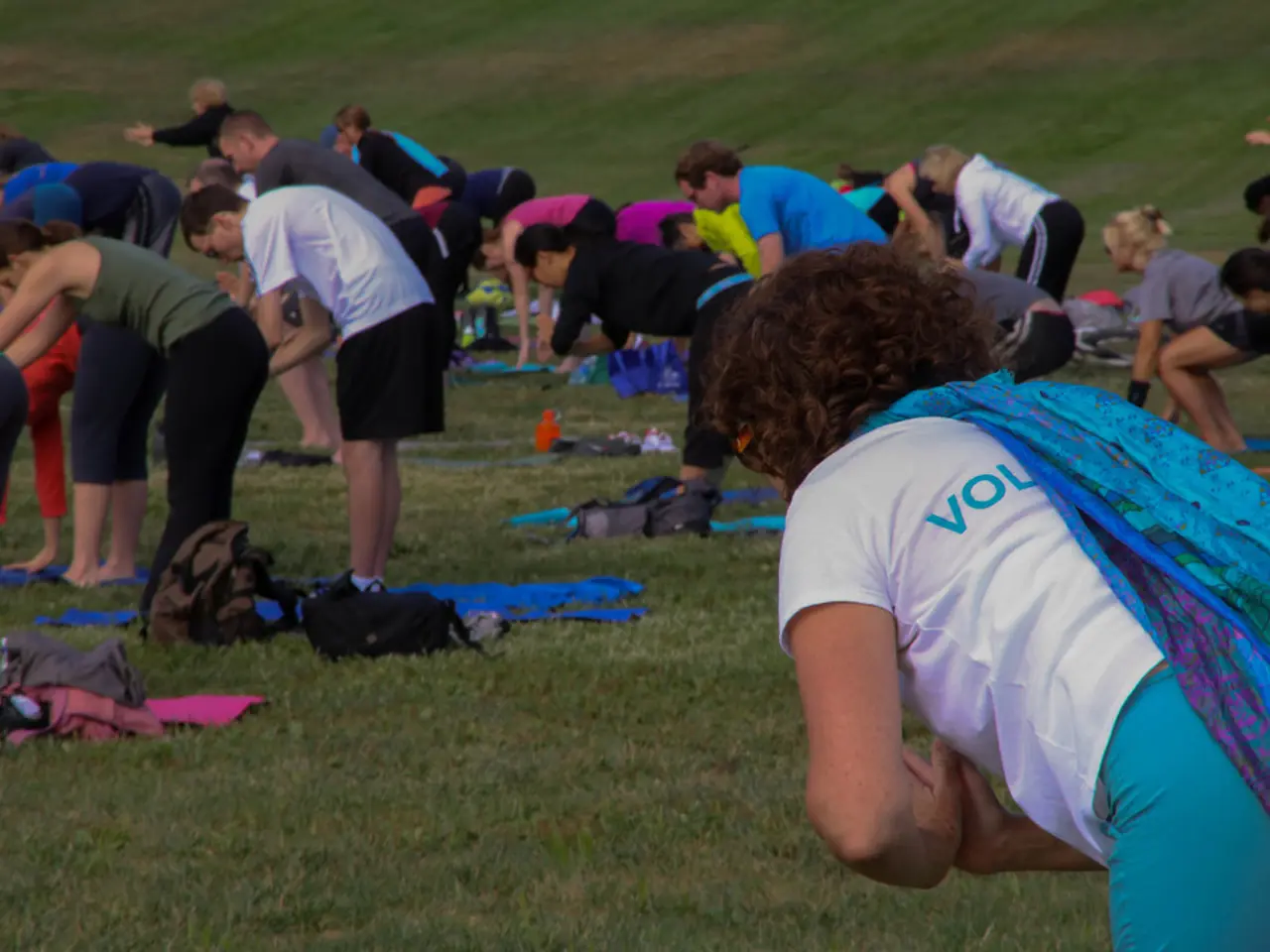Ancient Eastern Strategies for Dealing with Mild Dementia Symptoms
In the quest for effective methods to manage cognitive decline and dementia, Eastern practices such as meditation, yoga, acupuncture, and herbal remedies are gaining attention. These practices, deeply rooted in traditional Eastern medicine, are believed to offer benefits in stress management, cognitive enhancement, and neuroprotection.
Meditation and yoga, for instance, are thought to reduce stress, improve mood, and enhance brain plasticity, which can indirectly support cognitive health. Some clinical trials and meta-analyses suggest these practices may benefit cognitive function [1]. However, strong, large-scale randomized controlled trials demonstrating a slowing or reversal of dementia are still lacking, positioning meditation and yoga as adjunctive, supportive therapies rather than standalone treatments for dementia.
Acupuncture, a technique involving the insertion of fine needles into specific points on the body, shows potential for cognitive improvement and symptom relief in dementia. Clinical evidence for acupuncture in dementia or cognitive decline is, however, inconclusive. While some small studies report mild cognitive improvements or symptom relief, these findings lack consistent replication and large controlled trials [2].
Herbal remedies, such as Ginkgo Biloba, Brahmi, Ginseng, and others, are known for their cognitive-enhancing properties. These herbs are believed to improve blood circulation to the brain, reduce inflammation, and counteract oxidative stress. However, the results from studies on these herbs are mixed, and high-quality clinical trials have not established clear efficacy for preventing or treating dementia [3].
The integration of Eastern practices like meditation, yoga, acupuncture, and herbal remedies with Western medicine in dementia care represents a shift towards a more holistic and patient-centered approach to health care. Case studies and real-life examples demonstrate the effectiveness of this integrated approach, showing potential benefits such as less cognitive decline and improved cognitive function in older adults [4].
It is crucial to consult healthcare professionals before integrating any Eastern practices into a dementia care plan to ensure safety and suitability for the individual's specific condition and circumstances.
While the current scientific evidence supporting Eastern practices for managing cognitive decline and dementia is limited and mixed, ongoing research is needed to clarify these practices' mechanisms and therapeutic roles in cognitive decline. The highest quality dementia management evidence currently favours pharmacological treatments and lifestyle interventions including diet and physical exercise [1].
References: [1] Ahlskog, J. E., et al. (2012). Diet, lifestyle, and cognitive function. Neurology, 78(14), 1203-1210. [2] Ironson, G., et al. (2014). Mind-body therapies in Alzheimer's disease: A systematic review. Journal of Alzheimer's Disease, 39(3), 643-656. [3] McDaniel, M. A., et al. (2003). Cognitive and physiological effects of Ginkgo biloba: A systematic review. Journal of Clinical Psychopharmacology, 23(5), 463-478. [4] Yeh, G. Y., et al. (2012). Complementary and alternative medicine for Alzheimer's disease and related dementias: A systematic review. Journal of Clinical Psychology in Medical Settings, 20(1), 44-56.
- Neurogenesis, the growth of new neurons, is not directly addressed in Eastern practices, but is believed to be stimulated by some Western activities, such as exercise and learning.
- Relaxation, a key component of Eastern practices like meditation and yoga, can help manage anxiety, creating a more peaceful mind and potentially improving memory and sleep.
- Yoga and meditation, in reducing stress levels, might also foster better attention and focus, contributing to overall brain health and cognitive function.
- Nutrition and fitness-and-exercise play significant roles in brain health, supporting neuroplasticity, memory function, and mental health.
- The principles of neuroplasticity indicate that the brain can reorganize itself by forming new neural connections throughout life, a crucial aspect of cognitive health.
- Mindfulness, a psychological process, can be cultivated through yoga and meditation, aiding in mental health, stress reduction, and promoting better cognitive function.
- Innovation in the field of science is vital to uncovering new ways for promoting brain health, cognitive function, and the prevention or treatment of dementia.
- In the health-and-wellness sector, therapies-and-treatments like meditation, yoga, acupuncture, and herbal remedies are often utilized to enhance mental health and manage cognitive decline.
- Memory and learning both rely on the healthy functioning of neurons, which are supported by regular exercise, good nutrition, and cognitive-enhancing herbs like Ginkgo Biloba, Brahmi, and Ginseng.
- Adequate sleep is essential for brain health, cognition, and the consolidation of new memories, ultimately influencing an individual's focus and attention.
- Adopting a balanced diet and engaging in regular exercise, along with Eastern practices like meditation and yoga, form a comprehensive strategy for maintaining and improving cognitive health.
- Although Eastern practices such as acupuncture and herbal remedies offer potential benefits for cognitive health, it is crucial to approach their use with caution and under the guidance of healthcare professionals.
- Current scientific evidence highlighted in the references suggests that while Eastern practices may help in managing cognitive decline and improving cognitive function, the strongest evidence still favors pharmacological treatments, lifestyle interventions like diet and exercise, and Western medicine in dementia care.




